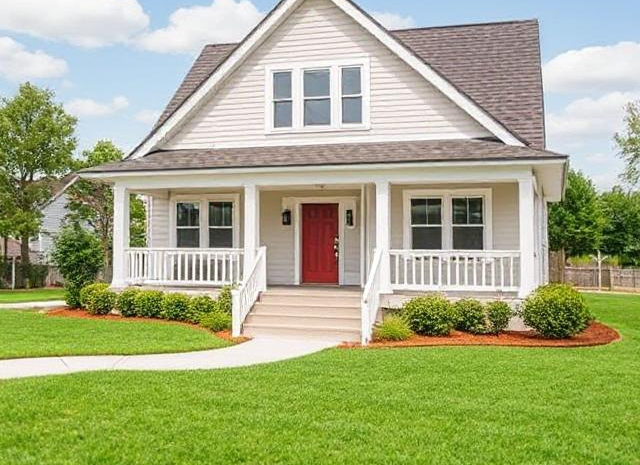
Why New Homeowners Need Insurance Before Closing A Deal
As a new homeowner, securing homeowners insurance before closing the deal on your property is crucial. Many mortgage lenders require proof of insurance before finalizing the purchase, and having the right coverage in place can protect you financially from unexpected events. Here’s why new homeowners should have insurance in place before closing:
1. Mortgage Lender Requirement
- Proof of insurance: Most mortgage lenders require you to have homeowners insurance before closing on the home. This protects both you and the lender in case something happens to the property after the deal is finalized. If you’re financing the home, the lender will want to ensure their investment is covered if something unexpected occurs (such as a fire, storm, or other damage) before you take ownership.
- Escrow account: Often, the lender will also set up an escrow account to pay for your annual homeowners insurance premiums. This is done as part of your monthly mortgage payment, so having your insurance in place before closing is essential for setting up the escrow account.
2. Protection From Unexpected Risks
- Liability coverage: Even before you officially take ownership, you may be responsible for certain liabilities related to the property. If someone is injured on the property before the closing, or if there’s damage that occurs, your homeowners insurance could protect you from legal and financial consequences.
- Property damage: If any damage occurs to the property, such as a fire, storm, or vandalism, having homeowners insurance ensures that repairs or replacement are covered. Without insurance, you could be responsible for repairing damages out-of-pocket, which could be financially devastating.
3. Coverage During the Closing Process
- Coverage gap: The process of closing on a home can take several weeks, and if something happens to the property during this time, you could be exposed to risks. With homeowners insurance in place before closing, you ensure that you’re covered during this vulnerable period. For example, if there’s a storm that causes significant damage to the house before the sale is complete, having insurance means you won’t be left without coverage.
- Insurance during the move-in: Insurance before closing also protects you when you start moving your personal belongings into the home. If you accidentally damage the property while moving in, or if personal property is stolen, your insurance would help cover the costs.
4. Peace of Mind
- Avoid stress and uncertainty: Purchasing a home can be a stressful process, and the last thing you want is to worry about potential risks that may arise before or during closing. Having insurance in place beforehand gives you peace of mind knowing that you’re protected, allowing you to focus on the excitement of becoming a homeowner.
- Confidence for closing: Your insurance policy ensures you’re meeting all requirements for the closing, which helps the process go smoothly. This adds an extra layer of security and confidence for both you and the lender that the deal can be finalized.
5. Time to Shop for the Best Coverage
- Adequate time for comparison: By arranging insurance ahead of time, you give yourself the opportunity to shop around and compare rates and coverage from different providers. Rushing to buy insurance at the last minute could lead to choosing a policy that might not fully meet your needs, or paying more than you need to. Shopping early allows you to find the best coverage at the most competitive price.
- Customizing your policy: Homeowners insurance policies can be tailored with specific add-ons or riders based on your needs. For example, if you’re moving into an area prone to floods, you may want to add flood coverage to your policy. Securing insurance before closing allows you to take the time to customize the policy based on your needs and the home’s risks.
6. Securing Adequate Coverage for Your New Home
- Home’s specific risks: Every home has different risks depending on factors like its age, location, and construction type. For instance, older homes might need additional coverage for things like electrical issues or plumbing, while homes in high-risk areas may require specific coverage for things like floods, earthquakes, or wildfires. Securing insurance before closing allows you to tailor your policy based on these risks.
- Full coverage protection: Homeowners insurance typically covers both the structure of your home and your personal property. If the property is unoccupied or in the process of changing ownership, you may not be fully protected unless your policy includes proper coverage for the transition period. Having insurance before the closing date ensures you have full protection.
7. Avoid Delays in the Closing Process
- Completing the paperwork: Many lenders won’t allow the closing to proceed unless they have confirmation of insurance coverage. If you don’t have homeowners insurance in place before the closing date, it could delay the process. By securing your insurance early, you avoid any last-minute complications and ensure the closing process goes as smoothly as possible.

